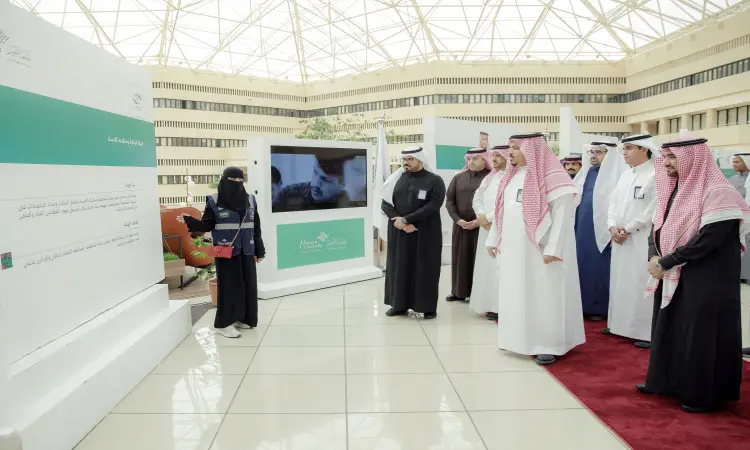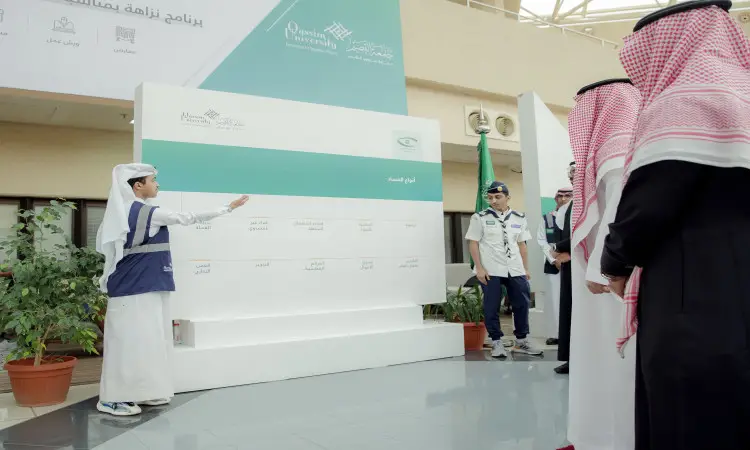On Sunday, 17/5/1444 A.H., UQU President Prof. Abdulrahman bin Hamad Al-Dawood sponsored the "Nazaha" program held by the Deanship of Student Affairs in the main lobby of the university city on the occasion of the International Anti-Corruption Day, in the presence of His Excellency the UQU Vice President for Educational Affairs, Dr. Muhammad bin Fahad Al-Sharekh, His Excellency the UQU Vice President for Planning and Development, Prof. Khaled bin Bani Al-Harbi, and a number of members of the University Council.
The program aims to spread the culture of integrity in society and preserve its resources, as well as highlight the Kingdom's efforts in fighting corruption and combating it and enhancing awareness among university students, in continuation of the university's efforts in this aspect, through 4 different tracks that varied between an exhibition containing 13 corners to review the efforts of the Custodian of the Two Holy Mosques King Salman bin Abdulaziz in combating corruption, in addition to introducing the strategy and vision of the Kingdom in fighting corruption, and raising awareness of the types of corruption and its negative effects on the individual and society and its role in combating it.
The program also included a number of workshops, competitions and awareness campaigns that contribute to establishing the principle of transparency and accountability, strengthening national attitudes and reviewing the Kingdom's efforts in fighting corruption, in addition to the efforts of the Nazaha Student Club at Qassim University in creating awareness among university students through positive practices of the integrity values system, in order to strengthen their national attitudes and reject corruption in all its forms.
The exhibition reviewed the types of corruption, including bribery, money laundering, abuse of authority, trading in influence, commercial fraud and others. It also addressed the negative effects of corruption, including violating God's law, wasting the interests of citizens and impeding the wheel of development, while emphasizing the importance of the role of the individual and society in combating corruption.





